Everyday play is vital to toddlers’ cognitive development and their social, emotional, and physical well-being. Science suggests that children, especially toddlers, learn best through play.
Specifically, their natural playful behavior seems to affect their ability to learn, especially when the activity interests them. In fact, play is a valuable method of learning for toddlers.
So, let’s look at play and cognitive development in early childhood.
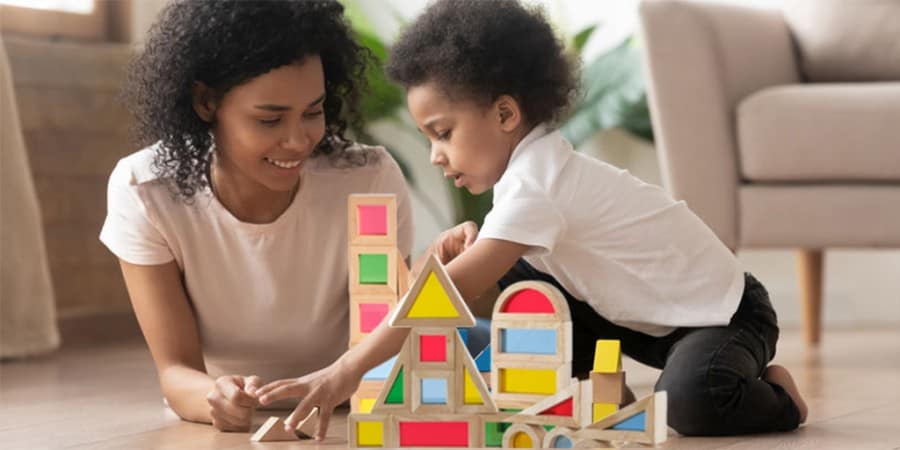
What Is Cognitive Development?
Cognitive development in children focuses on the advancement of processing information as it pertains to:
- Perceptual skills
- Language abilities
- Attention
- Memory
- Decision-making
- Learning
As a core component of cognitive development for 2 to 3-year-olds, brain development requires a lot of exploring, thinking, and figuring out how things work as they relate to their environment.
Toddlers sing songs, play with blocks, and listen to their parents talk or read; those interactions increase their cognitive skills.
What Are Cognitive Skills?
In early childhood, your toddler’s ability to learn is rapidly developing. Accordingly, cognitive abilities or skills are the tools and behaviors your toddler’s brain uses to learn and process information, both incoming and outgoing.
Cognitive skills in toddlers enable them to take in information and store it in the brain until it is needed. Later, when required, their cognitive abilities help retrieve and use the information to focus, think, read, analyze, evaluate, make comparisons, problem-solve, and grasp cause and effect.
How To Support Cognitive Play For Toddlers
As a parent, your support and ability to foster cognitive development is vital.
- The first thing to remember is to create an environment and attitude that gives toddlers choices.
- Secondly, encourage their problem-solving and decision-making by allowing them time to figure things out.
- Gently guide and support them in trying different solutions, for example, “Is there another spot the puzzle piece might fit?” Or “What about turning the puzzle piece in a different direction?”
- Most important, be patient and let them solve the problem.
- Finally, celebrate their successes to further support trying new things.
Spending quality time engaging and playing with your toddler is critical to their development. Furthermore, this time builds your relationship and sends a powerful message, “That You Matter To Me!”
Positive relationships lay the groundwork for your toddler’s cognitive development, but none are as essential as the loving one you have with your child.
Children who feel important have more confidence and experience the freedom to explore. They learn about the world, discover who they are, and how they fit into it all.
So, engage with your child, whether playing with blocks, doing puzzles, creating with arts and crafts, reading, or being immersed in outside activities; most importantly, let them lead the play!
“Time spent playing with children is never wasted.”
Dawn Lantero
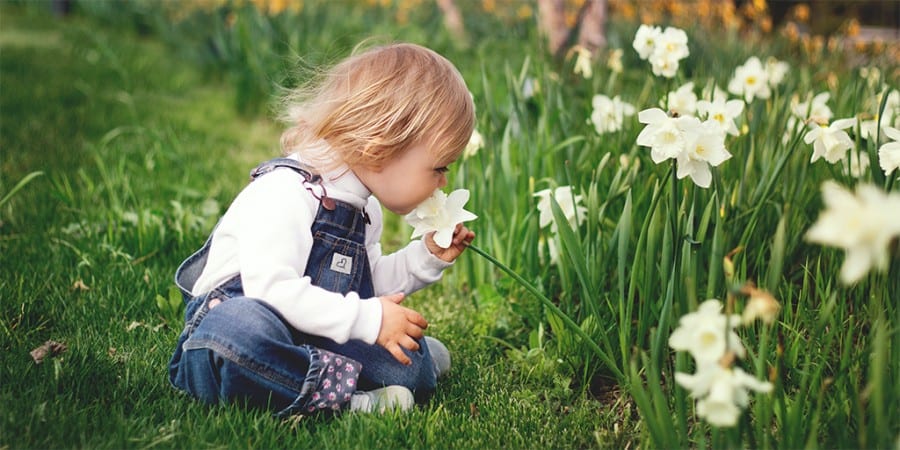
cognitive Play activities
- Add fun items to bath time, for pouring, scooping, and measuring. Experiment to see if things float or sink.
- Assemble puzzles, encouraging trial and error to fit the pieces together.
- Create an art box with paper, crayons, paint, colored chalk, fabric scraps, and other materials. Then, let them create, using their imagination and creativity.
- Encourage and participate in imaginative play together.
- Enjoy outside activities at a park or in your backyard. Support exploration with a nature walk.
- Expose your child to cognitive development toys, games, and activities such as blocks for toddlers.
- Invite exploratory play by encouraging them to discover through their senses.
- Play simple games like “Simon Says” or “Follow The Leader.”
- Provide materials such as colored pegs, blocks, or shapes for matching, sorting, and counting games.
Cognitive Development Activities For Toddlers
- Answer your toddlers, “Why?” questions. Find the answers together whenever possible.
- Build and expand on your toddler’s interests. For instance, if they love sea animals, plan a trip to the aquarium to further their learning.
- Develop their social skills by inviting your toddler to play with other children.
- Engage in language activities, such as storytelling.
- Model and teach appropriate ways to show emotions like anger and frustration.
- Read books daily. Ask them to name items in the book or fill in the blanks. For instance, stop reading one of their favorite books and ask your toddler, “What happens next?”
- Recite classic rhyming songs like “Row, Row, Row Your Boat.”
- Sing silly or action songs such as “I’m A Little Teapot” Or “Head And Shoulders.”
- Talk and have conversations about what you are doing and where you are going. For example, “We are going to get dressed after breakfast.” “After we get dressed, we are going to the park.”
- Teach your toddler finger-play songs like “Itsy Bitsy Spider.”
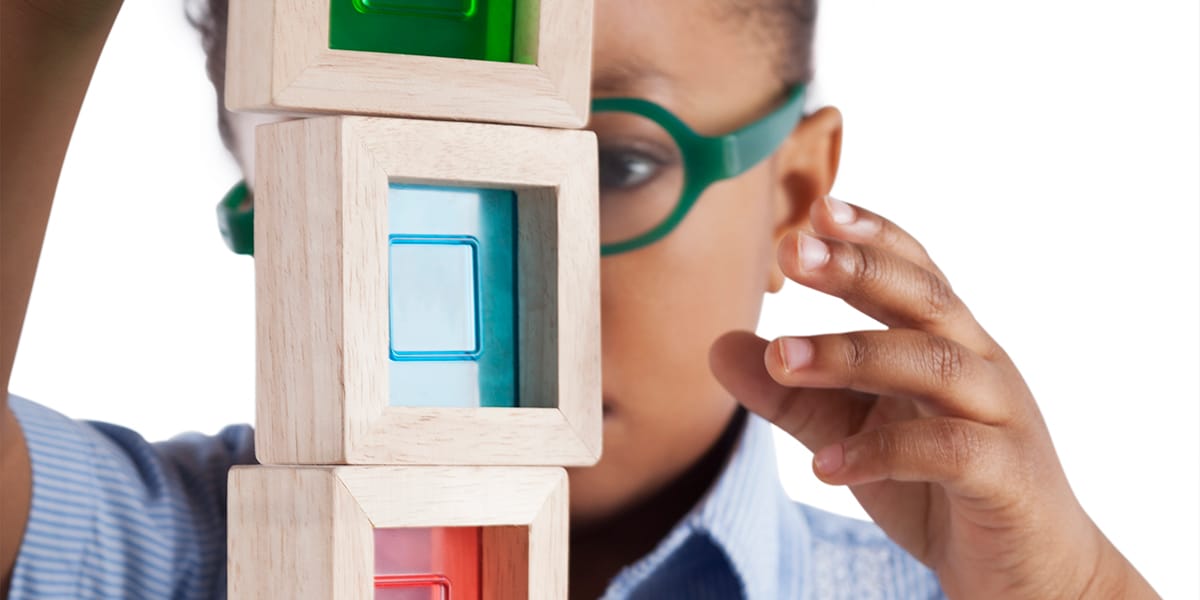
Finally, how about some block play with wooden blocks for toddlers to build their cognitive skills?
Block Play and Toddler Cognitive Development
Your block center is the ideal place for cognitive development in play. Block play activities foster exploring, thinking, and problem-solving. Whether your toddler is sorting, stacking, or designing the next Eiffel Tower, they are building their cognitive skills.
The benefits of building with blocks are numerous; in addition to developing your toddler’s cognitive abilities, children playing with blocks build skills in the following areas: social-emotional, language, creativity, physical, and motor.
The more your toddler builds, the more cognitive growth occurs.
Building block activities are easy to include in your daily routines. When you engage in block play with your toddler, it supports exploring and discovering new concepts.
Cognitive Development Examples in Block Play:
- Allow toddlers to understand 1 block versus 2 blocks.
- Brings understanding to ‘taller”, “shorter”, “longer”, “same”, “different”, “heavier”, and more.
- Experimenting with cause and effect, your toddler discovers how a block reacts when added to the top of another one. Why did the tower come crashing down?
- Physical interaction reinforces what it means to “add” blocks to make the tower taller or “subtract” blocks so the roads are the same length.
- Provides the opportunities to understand one-to-one correspondence.
- Through trial and error, your toddler begins to understand how to balance the blocks and defeat gravity.
“Playtime is precious. Play builds brain pathways for thinking, creativity, flexibility, empathy, and many other lifelong skills.”
Heather Shumaker
Cognitive Development In Toddlers
Studies show, and many experts agree, that free play is crucial for your toddler’s brain development!
And what do toddlers love to do? They love to play and explore!
At play, they are thinking, learning, experimenting, exploring, and problem-solving all the time. Consequently, your toddler wants to test and try everything. Even if things do not seem appropriate for their age. Bound only by their abilities, they are determined to discover how everything works.
At this stage, toddlers are rapidly building independence, confidence, and self-expression, which can often be difficult for parents.
We’re sure you have heard of the “terrible twos.” Maybe you are experiencing them right now!
Cognitive development in toddlers means they:
- Know about 100-150 words.
- Add approximately 10 new words a day.
- Understand the concepts of “please” and “thank you.”
- Grasp their emotions and better understand fear, anger, and love.
- Behavior is more appropriate.
- Comprehend discipline and inappropriate behavior.
- Love repetition; be prepared to read the same book or sing the same song repeatedly.
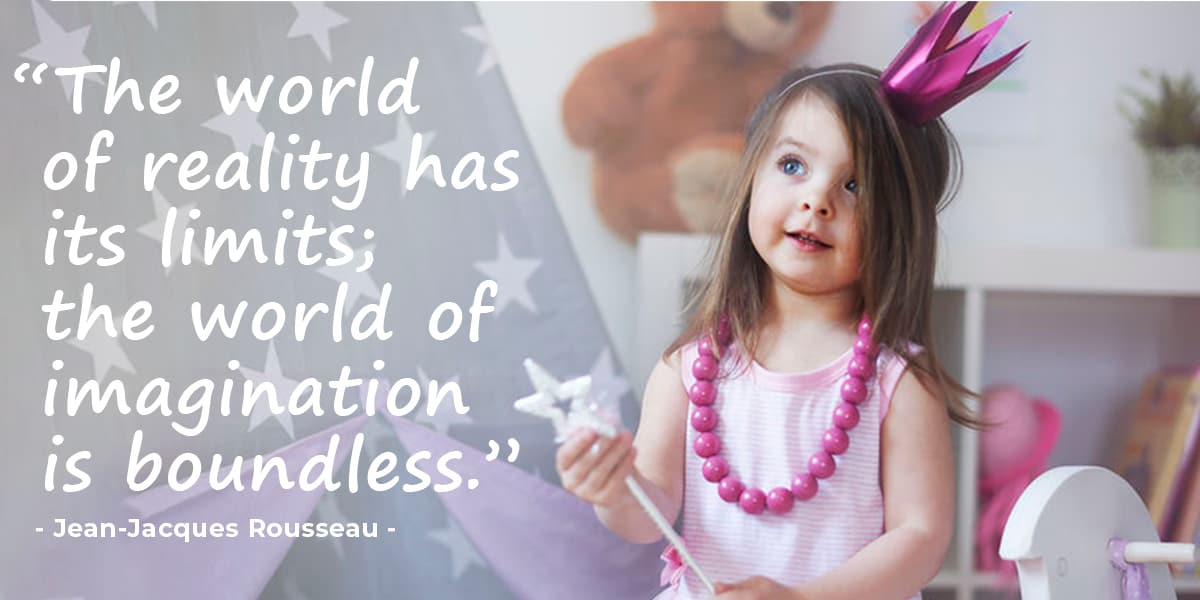
Pretend play becomes a focus of your toddler’s daily activities. They enjoy creating imaginative scenarios and playing with other children.
Through play, your child can act out daily life activities like shopping, cooking, and cleaning, helping them better understand their surroundings.
Have a preschooler? Check out our cognitive activities for preschoolers.
Cognitive Development Milestones
Cognitive skills such as following directions, counting objects, and sorting shapes are part of toddler cognitive development. Furthermore, these tasks or behaviors that most children complete by a certain age are referred to as developmental milestones.
These achievements or milestones are usually divided into five major domains, including physical growth, social-emotional development, motor development, cognitive and language development.
During this tremendous growth stage, your toddler’s physical, social-emotional, motor development (both fine and gross), cognitive development, and language will grow leaps and bounds. It can be an exciting time to watch them experience the world and their surroundings.
Toddler Cognitive Development Milestones (Learning, Thinking, Reasoning, Problem-Solving)
We will be looking specifically at the cognitive milestones of toddlers. Typically, children progress through developmental milestones in sequence. By the age of three, they will know or be able to complete most of the below tasks.
However, all children develop at their own pace, so use these for informational guidelines only. Please contact your pediatrician if you have any concerns about your toddler’s development.
Want to see what cognitive development for toddlers will look like over the next year? Here Is What To Expect:
- Answers simple questions like, “Where?” “What are you doing?” or “What is this?”
- Begins to sort or match some colors, pictures, or shapes.
- Can follow two or three-step commands (“Please, pick up the red block and put it on the shelf next to the blue one.”)
- Communicates a wide range of emotions and feelings.
- Comprehends the concept of one-to-one actions, such as passing out one book per person.
- Counts 2-3 objects.
- Curious about how things work and will use trial and error to investigate.
- Develops a sense of humor.
- Engages in imaginative play, enjoying easy make-believe games.
- Enjoys simple 3-4 piece puzzles.
- Finds objects even when hidden.
- Has an increased attention span.
- Imitates playmates or adults – for example, doing laundry, cooking, or playing house.
- Incorporates toys in multiple ways, such as using blocks in pretend play—for example, a block may be used as a telephone.
- Knows full name, gender, and age.
- Labels body parts.
- Likes looking at books, listening to stories, and storytelling. May make appropriate comments, and complete the rhymes or sentences in familiar books.
- Names at least one color and possibly more.
- Names items in a picture book.
- Recalls parts of a story or past experiences.
- Recognizes familiar objects and can match them with their use.
- Starts to understand time like the future (tomorrow or soon.)
- Understands “same” and “different.“
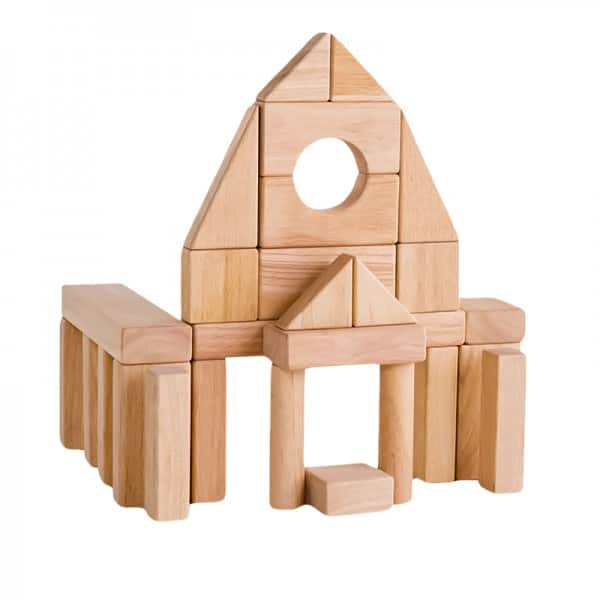
A relationship with a loving, caring, and trusting adult is essential to cognitive development in toddlers. The time you spend together playing sends an important message, “You are important to me, and you are loved!” So grab a set of wooden toy blocks and enjoy some quality block play!
